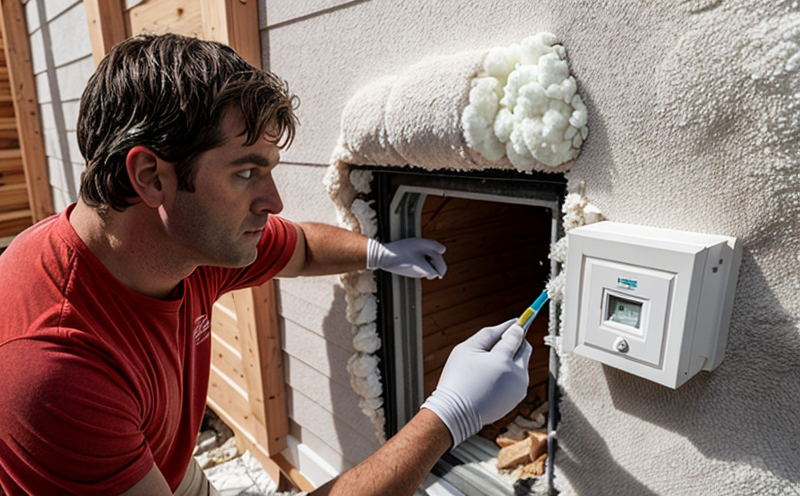EN 13162 Mineral Wool Thermal Performance Testing
The European standard EN 13162 specifies the methods for determining the thermal conductivity, thermal resistance and apparent density of mineral wools. This testing is crucial in ensuring that insulation materials meet specified performance levels, thereby contributing to energy efficiency and sustainability goals.
Mineral wool insulation plays a pivotal role in building and infrastructure projects by providing excellent thermal insulation properties. It helps reduce heating and cooling demands, leading to lower energy consumption and operational costs. The testing outlined in EN 13162 ensures that the mineral wools used meet specific performance criteria, which are essential for regulatory compliance and product quality.
The standard covers a range of parameters including thermal conductivity (λ), thermal resistance (R-value), and apparent density. These properties are measured using various standardized tests such as hot plate methods or guarded hot box apparatus. The testing process involves carefully preparing the specimens according to the prescribed procedures, ensuring accurate measurements under controlled conditions.
The significance of this test lies in its ability to provide data that can be used for design optimization and compliance verification. For instance, architects and engineers rely on these results when specifying insulation materials in new construction projects or retrofitting existing buildings. By adhering to EN 13162, manufacturers can ensure their products meet the stringent requirements set by regulatory bodies across Europe.
Understanding the scope of this test is important for those involved in quality management, compliance officers, and research & development (R&D) engineers working within the building and infrastructure sector. These professionals need to be aware of the precise methodologies employed during testing so they can make informed decisions about material selection and product performance.
Applied Standards
The primary standard used in this type of testing is EN 13162:2019, which provides guidelines for determining the thermal conductivity, thermal resistance, and apparent density of mineral wools. However, it’s worth noting that other international standards such as ASTM C518 or ISO 8302 may also be applicable depending on specific regional requirements.
International Acceptance and Recognition
- EN 13162 is widely recognized in Europe and has been adopted by countries like Germany, France, Italy, and the United Kingdom.
- This standard ensures consistency across borders when it comes to testing mineral wool products for thermal performance.
The global acceptance of EN 13162 highlights its importance in promoting uniformity in product quality standards internationally. This interoperability allows manufacturers and suppliers to confidently market their products globally, knowing they meet stringent European requirements.
Environmental and Sustainability Contributions
- The use of EN 13162 helps minimize energy consumption by ensuring that buildings are adequately insulated with high-performance materials like mineral wool.
- By adhering to these standards, builders contribute positively towards reducing carbon footprints associated with heating and cooling operations.
The continuous improvement of insulation technologies supported by rigorous testing protocols contributes significantly to environmental protection efforts. Minimizing energy use not only reduces greenhouse gas emissions but also conserves natural resources through efficient resource utilization practices.





